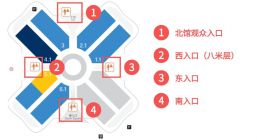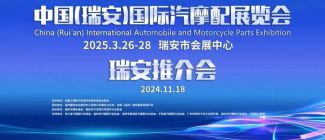Recently, the International Energy Agency (IEA) released its latest report stating that the global battery market is rapidly expanding due to the sharp rise in demand and the continuous decline in prices.
According to IEA data, global electric vehicle sales will increase by 25% to 17 million units in 2024, and the annual demand for batteries will exceed 1TWh for the first time; The global battery production capacity has reached 3TWh. If all officially announced projects are completed, the battery production capacity is expected to double in the next 5 years. At the same time, the average price of electric vehicle batteries has dropped below $100/kWh. Breaking this threshold means that electric vehicles can compete with traditional fuel vehicles in terms of cost.
According to IEA analysis, in addition to the strong demand for electric vehicles, the decline in key battery material prices is also a major factor in cost reduction, with lithium prices dropping by over 85% compared to their peak in 2022. In addition, technological advancements have also contributed to the decline in battery prices.
The IEA stated that the decline in battery raw material prices and continuous technological innovation have propelled the global battery industry into a new stage of development, accelerating from a regional market to a global market. Looking ahead, factors such as economies of scale, supply chain cooperation, manufacturing efficiency, and technological innovation will accelerate the battery industry's entry into larger scale integration. Meanwhile, localized manufacturing driven by governments around the world is also reshaping the battery supply chain.The decline in battery prices in the Chinese market has slowed down
In 2024, batteries produced in China will account for more than three-quarters of global sales. Moreover, the average price of batteries in China will decrease the fastest, by nearly 30%, which is more than 30% cheaper than batteries produced in Europe and 20% cheaper than those produced in North America. Some electric vehicles produced in China are already priced lower than gasoline vehicles.
The IEA believes that the cost advantage of Chinese enterprises can be attributed to four main factors: technological innovation advantage under economies of scale, highly integrated supply chain, growth in market share of lithium iron phosphate, and intensified internal competition.
Specifically, over 70% of the electric vehicle batteries produced globally come from China. Battery giants such as CATL and BYD concentrate industry resources and drive innovation, expanding production faster and more efficiently than their competitors and achieving higher yield rates.
At the same time, from mining and refining of mineral metals to the production of battery manufacturing equipment, precursors, and other components, as well as the final production of batteries and electric vehicles, the Chinese battery ecosystem covers all steps of the supply chain, bringing about faster and greater reductions in manufacturing costs.
In addition, Chinese battery companies have a clear advantage in the production of lower priced lithium iron phosphate (LFP) batteries, which account for nearly half of the global electric vehicle market share. Their prices are about 30% lower than the mainstream nickel cobalt manganese oxide (NMC) batteries in the current market.
The IEA also mentioned that under the fierce competition in the Chinese market, some companies have been compressing their profit margins and selling batteries at lower prices to consolidate and expand their market share. But the downward trend of battery prices in the Chinese market is expected to slow down in the future. Under intense market competition and constantly squeezed profit margins, some battery manufacturers will be eliminated, while others will gain greater influence and pricing power. Nevertheless, it is expected that China will maintain its position as the world's largest battery producer in the next decade.Accelerated expansion of battery production in markets outside of China
The IEA pointed out that although China currently dominates the battery market, battery production in other markets is also rapidly advancing.
Japanese and Korean companies are major participants in the global battery industry, and battery manufacturers and suppliers in these two countries mainly produce NMC batteries. Although their production capacity is limited, they are both traditional battery manufacturers with a large amount of overseas investment. The annual overseas battery production capacity of South Korea is close to 400GWh, far exceeding Japan (60GWh) and China (30GWh). The main challenge for Korean batteries comes from their lagging transformation in the field of lithium iron phosphate, and in recent years, they have begun to increase their related layout.
Since the implementation of the battery production tax credit in the United States in 2022, battery production capacity has doubled and reached over 200GWh by 2024, with nearly 700GWh of under construction capacity. Among them, about 40% of the existing production capacity is operated or developed in close cooperation between mature battery manufacturers and automobile manufacturers. However, the progress of battery manufacturing in the United States is slow, and the positive and negative electrode materials mainly rely on imports. In the past two years, although the demand for batteries in energy storage systems has been relatively small, the annual demand growth rate has exceeded 60%, becoming the main demand growth point outside of electric vehicles.
In addition, several Southeast Asian countries and Morocco are becoming potential production centers for batteries and their components. Among them, Indonesia owns half of the world's nickel mines, and the first batch of electric vehicle battery manufacturing and graphite anode factories will begin production in 2024. Morocco has the largest reserves of phosphate, which is one of the essential raw materials for lithium iron phosphate batteries.
Regarding the European market, the IEA mentioned that "battery production in Europe is facing a moment of life and death." The production cost of batteries in Europe is about 50% higher than that in China, and the battery supply chain ecosystem is relatively weak, with a severe shortage of professional talents. Currently, a large number of battery manufacturers in Europe have postponed or cancelled their plans to expand their battery production lines due to uncertain profit prospects.
For example, the IEA stated that Northvolt, the largest battery manufacturer in Europe, has filed for bankruptcy protection, highlighting the gap in scale, technology, and other aspects between European companies and Asia in battery manufacturing.
The IEA also mentioned that despite the current challenges, Europe may still have the potential to create a more competitive battery industry. In addition, some South Korean companies have started investing in the production of lithium iron phosphate batteries in Europe to better compete with Chinese manufacturers. Chinese battery manufacturers may continue to expand their business presence in Europe.
Finally, the IEA reminds that despite the rapid decline in battery prices and continuous innovation, the concentration of battery supply chains has raised security concerns in some countries in recent years.
The IEA believes that in emerging markets, electric vehicles are the only strong driving force that can support large-scale production, but local demand may not necessarily be able to sustain it. In addition, introducing mature battery companies through joint ventures or technology licensing can shorten the localization production and supply chain construction cycle. Meanwhile, it is also necessary to strengthen international cooperation. The market size of some countries is difficult to obtain sufficient investment in the battery field, and deep cooperation with other countries in the field of electric vehicles and batteries is needed, as well as cooperation with countries rich in new energy mineral resources such as South America and Africa, Australia and Indonesia, in order to further achieve the localization production goal of the battery industry.
AMS2024 Exhibition Guide | Comprehensive Exhibition Guide, Don't Miss the Exciting Events Online and Offline
Notice on Holding the Rui'an Promotion Conference for the 2025 China (Rui'an) International Automobile and Motorcycle Parts Exhibition
On September 5th, we invite you to join us at the Wenzhou Auto Parts Exhibition on a journey to trace the origin of the Auto Parts City, as per the invitation from the purchaser!
Hot Booking | AAPEX 2024- Professional Exhibition Channel for Entering the North American Auto Parts Market
The wind is just right, Qianchuan Hui! Looking forward to working with you at the 2024 Wenzhou Auto Parts Exhibition and composing a new chapter!
Live up to Shaohua | Wenzhou Auto Parts Exhibition, these wonderful moments are worth remembering!
Free support line!
Email Support!
Working Days/Hours!





